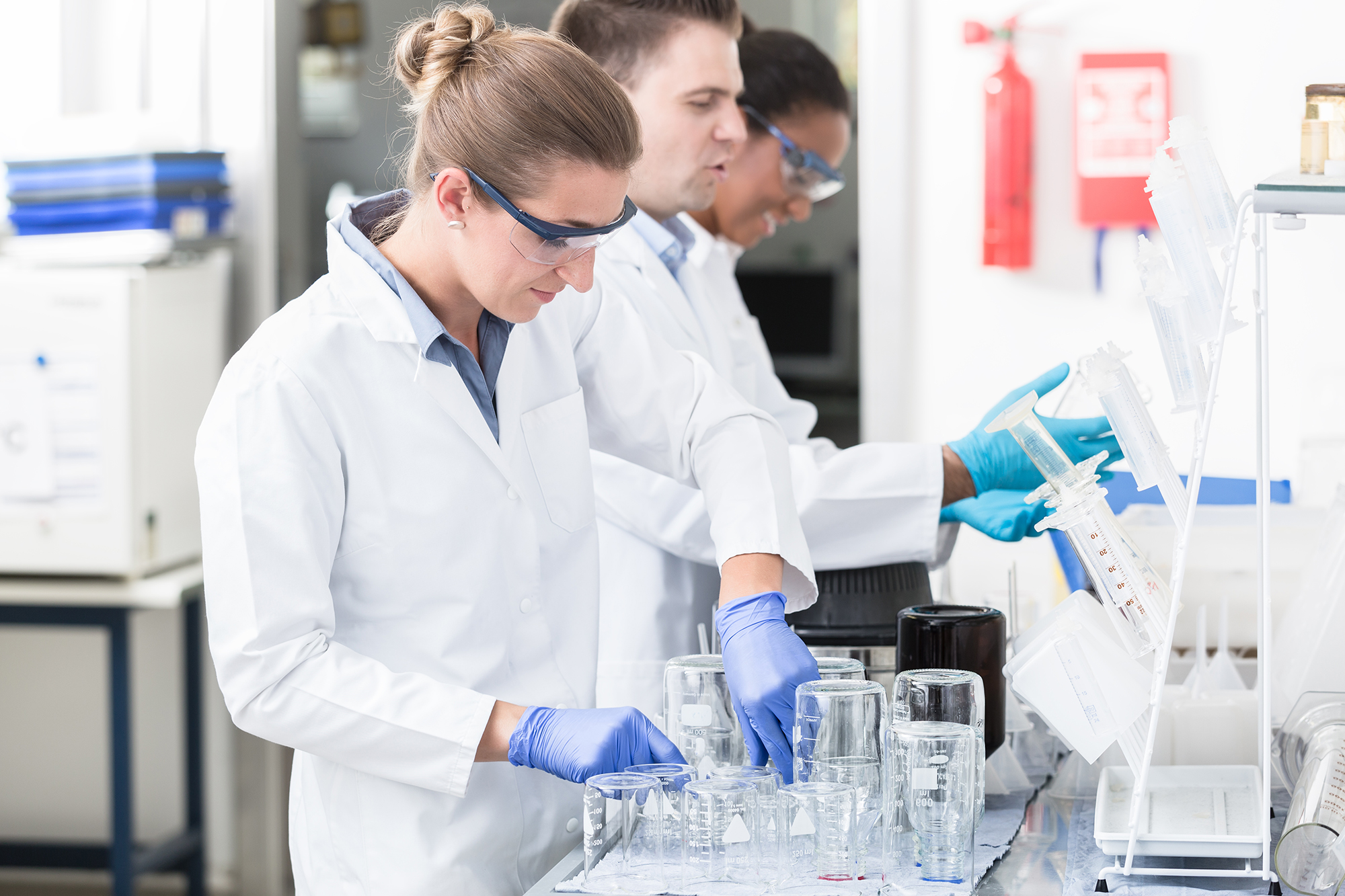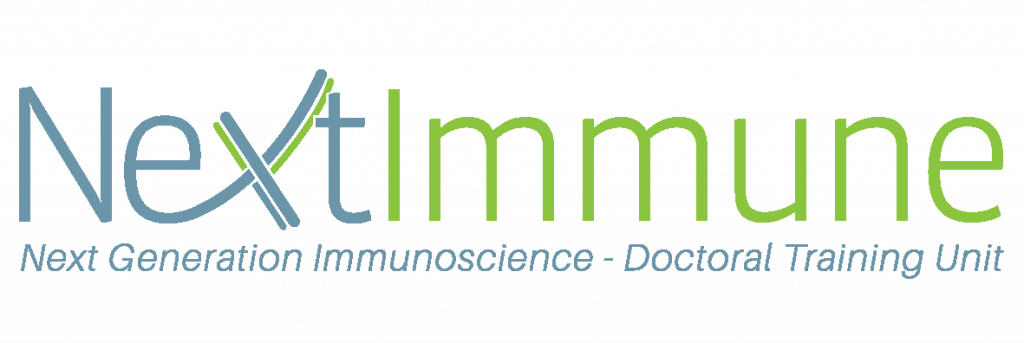
NextImmune – Doctoral Training Unit
Tackling next generation challenges
Background
Inflammation is a protective response of the immune system to extreme challenges to homeostasis, such as infection, tissue stress and injury. The vulnerability to inflammation as well as its severity, its chronicity and its resolution can be influenced by genetic, epigenetic and environmental factors. A break of tolerance results in a pathologic immune response to otherwise harmless structures like autoantigens or allergens, triggered by innate inflammatory stimuli, such as infection, stress, molecular properties of the eliciting antigen or injury.
Our understanding of these processes has increasingly benefited from the significant advancement of multiple high-throughput technologies (“Omics”) in the recent years. However, as a result of this development, immunological research is facing new challenges.
In the “Omics” era of Life Sciences, we are confronted with ever growing big data sets that need to be handled, integrated and interpreted. Biological data is hierarchical, heterogeneous, complex and dynamic, which makes the analysis very difficult from a bioinformatics point of view. Future researchers have to learn how to use these datasets to tailor the important information to the needs of their innovative projects. This seems to be especially important for research on such a multi-cellular and molecular network as the immune system, which when deregulated, can result in the establishment of a plethora of devastating disorders. Based on large dataset analyses, new hypotheses can be formulated while hypothesis-driven research will remain key to validate and expand these findings. These large-scale datasets can also be used to create predictive molecular networks and disease maps that will eventually revolutionise even clinical decision making.
As such, the combination of information science and hypothesis-driven research is the most promising approach that will culminate in the development of innovative solutions.
Objectives
Therefore, our PhD training program, the “Doctoral Training Unit” (DTU) “Next Generation Immunoscience: Advanced Concepts for Deciphering Acute and Chronic Inflammation” (NextImmune), is formed to address the described key research and innovation challenges associated with the initiation, the diagnosis and the treatment of immune-mediated diseases. NextImmune aims to bridge classical immunology and big-data analysis science in one doctoral training and education environment.
PhD training and research environment
NextImmune will host research groups with strong critical mass in systems immunology/biomedicine, computational biology, inflammation /infection and basic/molecular immunology/allergology from the Department of Infection and Immunity (DII) of the Luxembourg Institute of Health (LIH) and the Luxembourg Centre of Systems Biomedicine (LCSB) as well as the Life Science Research Unit (LSRU) of the University of Luxembourg (UL), an overall structure which will serve as a catalyst for the development of novel diagnostic and therapeutic approaches for severe human immune-mediated diseases. Once accepted into the NextImmune programme, the PhD candidates will benefit from a dual-degree training between UL and University of Southern Denmark (SDU).
Funding
NextImmune is funded over a period of 6.5 years by the Luxembourg National Research Fund (FNR) through the competitive PRIDE program and, in addition, through intramural funds from the Luxembourg Ministry of Higher Education and Research (MESR).


The strategies that were initiated within the DTU NextImmune are pursued in the NextImmune2 programme.
NextImmune2 will investigate different human diseases and disease models to study immunemetabolic crosstalk and understand how communication networks orchestrate and coordinate responses to environmental cues or immunological challenges.
Research will focus on two areas of immunology: immunometabolism (thematic area 1) and systems immunology (thematic area 2).

discover nextimmune
- Area A Data generation
- Area B Computational analysis
- Area C: Validation and pre-clinical target evaluation
contact
For any question related to the NextImmune DTU, please contact :
Prof Markus Ollert
Funded by

our open positions
All the NextImmune positions are filled! We are however always looking for excellent doctoral candidates, so do not hesitate to send us your application, including motivation letter and CV or to check our other open positions, and apply online! Please note that all applications should have to be done via the LIH portal.
